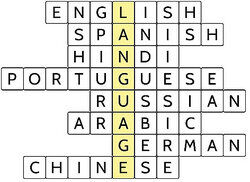Frankish Definition
frăngkĭsh
adjective
Of the Franks or their language or culture.
Webster's New World
Referring to the Franks.
Wiktionary
noun
The West Germanic language of the Franks.
Webster's New World
pronoun
The language of the Franks, an extinct West Germanic language.
Wiktionary
Related Articles
Find Similar Words
Find similar words to Frankish using the buttons below.
